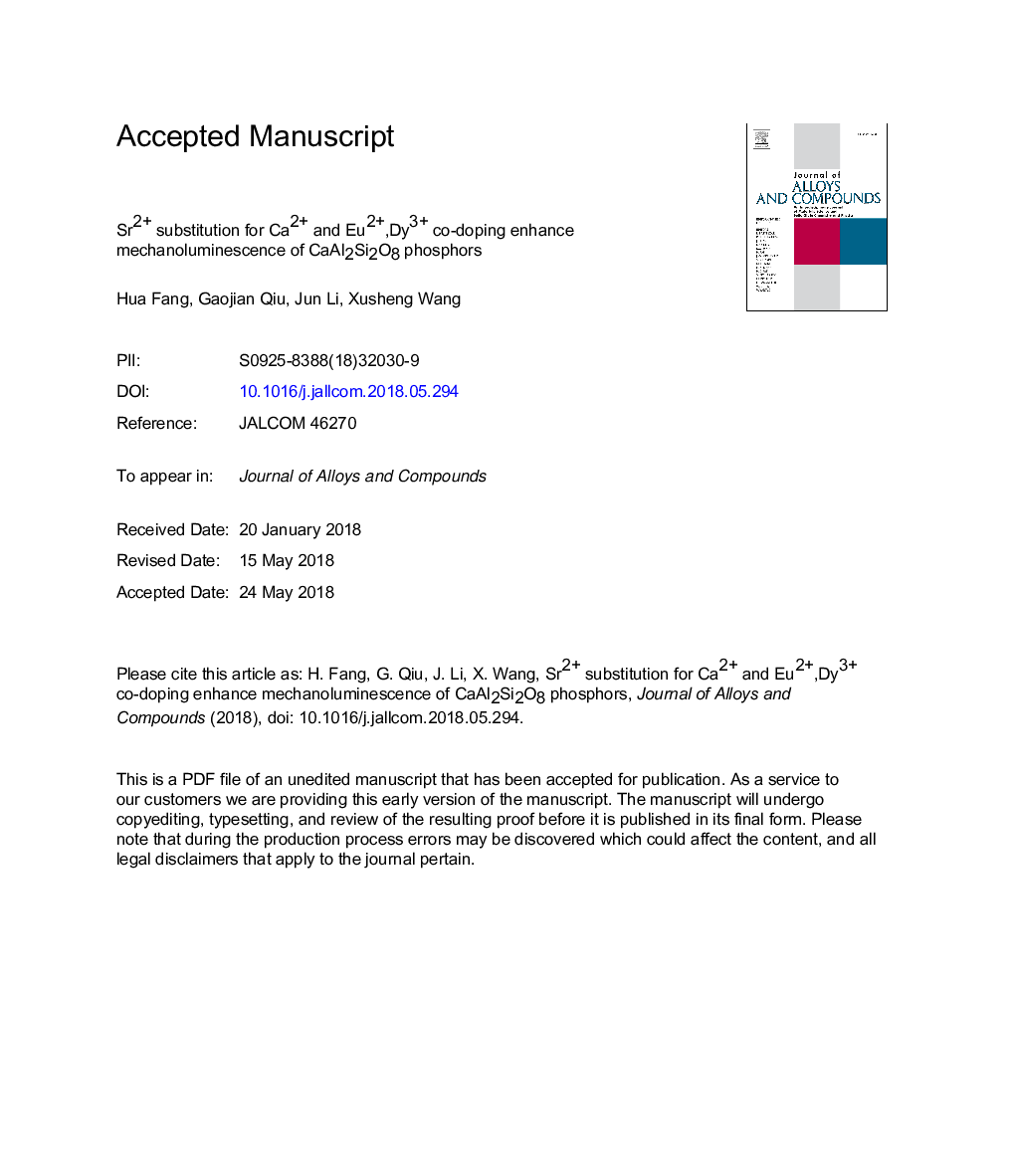| Article ID | Journal | Published Year | Pages | File Type |
|---|---|---|---|---|
| 7990809 | Journal of Alloys and Compounds | 2018 | 22 Pages |
Abstract
A series of phosphors (Ca1-xSrx)Al2Si2O8:Eu2+,Dy3+ (xâ¯=â¯0.1, 0.2, 0.3, 0.4, 0.5, 0.8) and Ca0.6Sr0.4Al2Si2O8:yEu2+,2yDy3+ (yâ¯=â¯0.005, 0.01, 0.015, 0.02) were prepared. It was found Ca0.6Sr0.4Al2Si2O8:Eu2+,Dy3+ achieved the highest mechanoluminescence intensity, and the optimal Eu2+ and Dy3+ co-doping contents were 1% and 2%, respectively. The emission peak of Ca0.6Sr0.4Al2Si2O8:0.01Eu2+,0.02Dy3+ was located at 413â¯nm on ML spectrum, which was similar to the photoluminescence, indicating both mechanoluminescence and photoluminescence were attributed to the 4f65â¯d1â4f7 transition of Eu2+. Also Ca0.6Sr0.4Al2Si2O8:0.01Eu2+,0.02Dy3+ exhibited an excellent threshold force (130â¯N) in the extremely broad tested force range (130-3000â¯N) and kept a nearly perfect linear response, which made it a potential candidate for application of pressure sensors. The introduction of Sr2+, Eu2+ and Dy3+ caused lattice distortion, formation of more defects, and thus generation of more suitable traps to capture the electronic carriers under ultraviolet excitation. Increasing the number of traps and tuning of the trap depth were found to increase the mechanoluminescence response.
Related Topics
Physical Sciences and Engineering
Materials Science
Metals and Alloys
Authors
Hua Fang, Gaojian Qiu, Jun Li, Xusheng Wang,
